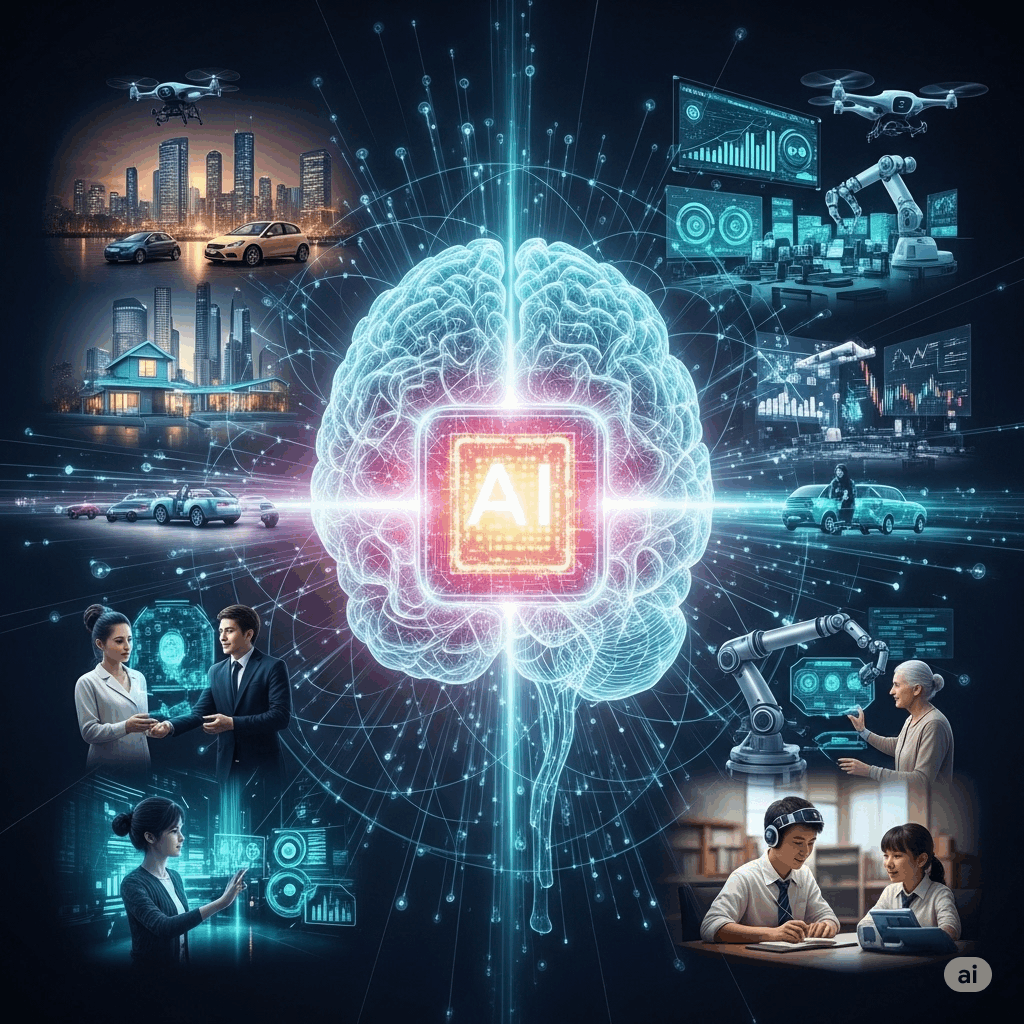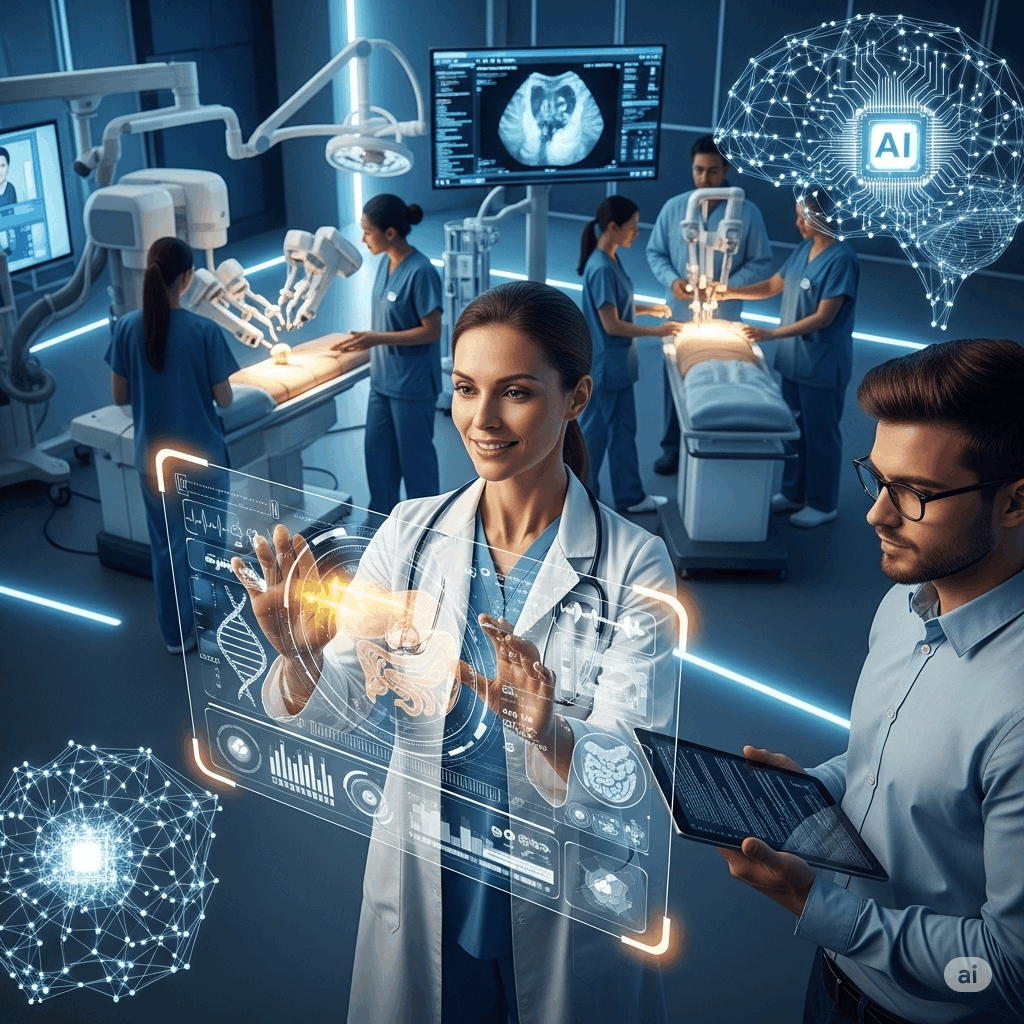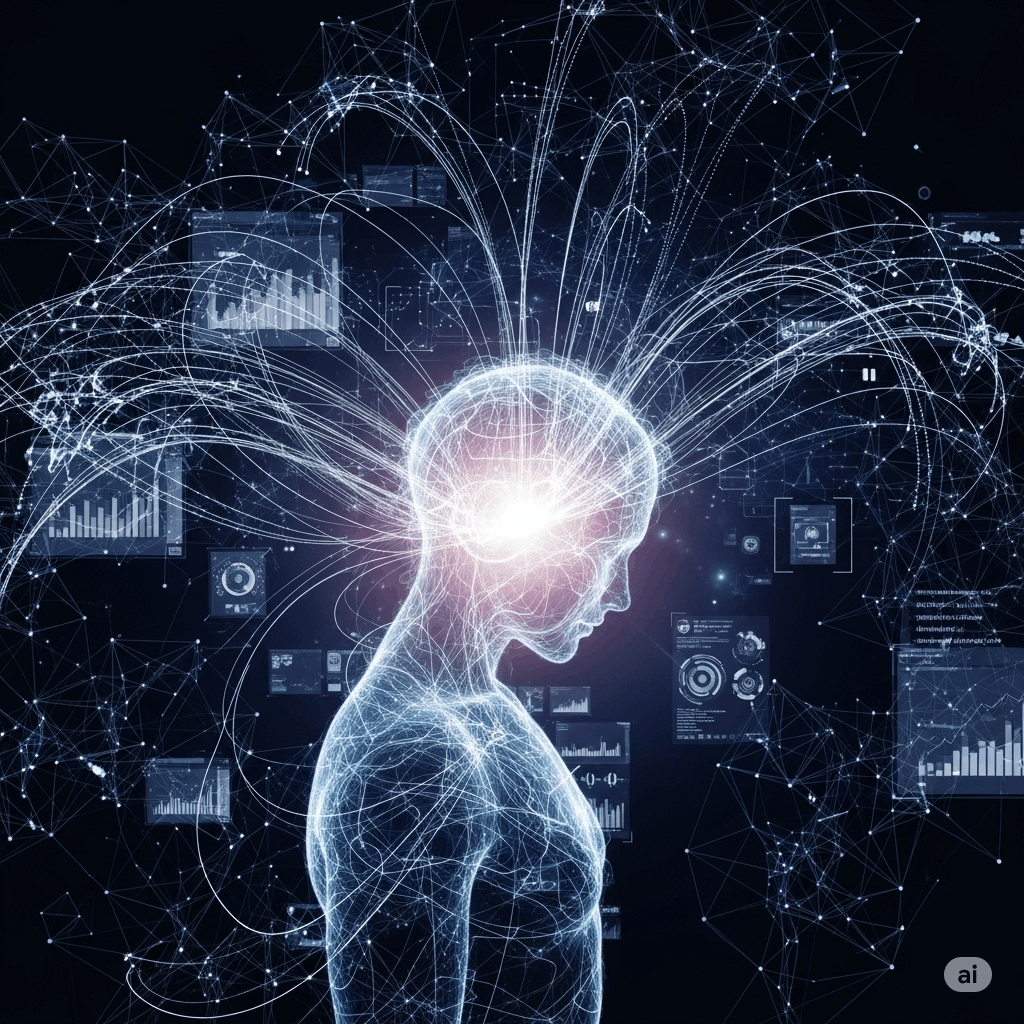AI and the Modern World: Transforming Society, Economy, and Everyday Life
Introduction
Artificial Intelligence (AI) has rapidly evolved from a futuristic concept to a pervasive force that shapes many aspects of modern life. Defined as the simulation of human intelligence by machines, especially computer systems, AI encompasses technologies such as machine learning, natural language processing, computer vision, and robotics. Over the past few decades, AI has moved from academic research labs to everyday applications, influencing industries ranging from healthcare to entertainment, finance to transportation.
The modern world is increasingly intertwined with AI-driven technologies that enhance productivity, improve decision-making, and create new possibilities. However, this rapid advancement also raises important questions about ethics, privacy, employment, and governance. This blog explores AI’s profound impact on society, economy, healthcare, transportation, education, creativity, and the future, offering a balanced view of its benefits and challenges.
AI in Daily Life
AI technologies have become embedded in many aspects of our daily routines, often operating behind the scenes but profoundly influencing how we live, work, and communicate.
Smart Assistants
Voice-activated smart assistants like Amazon’s Alexa, Apple’s Siri, and Google Assistant use AI to understand natural language commands, answer questions, control smart home devices, and help with scheduling and reminders. These assistants learn user preferences over time, offering personalized experiences that make daily tasks more convenient.
Personalized Recommendations
AI powers recommendation engines that shape our entertainment and shopping experiences. Platforms like Netflix analyze viewing history and preferences to suggest movies and shows, while Amazon recommends products based on Browse and purchase patterns. This personalization improves user engagement and drives business revenue.
Smartphones and IoT Devices
Modern smartphones integrate AI for features like facial recognition, predictive text, and photo enhancement. The Internet of Things (IoT) connects everyday objects—thermostats, refrigerators, security cameras—to AI systems that optimize performance and energy use, making homes smarter and more efficient.
Healthcare and Fitness Apps
AI-enabled apps track physical activity, monitor heart rate, and offer personalized fitness advice. Some apps use AI to analyze sleep patterns or detect early signs of health issues, empowering users to manage their wellbeing proactively.
AI and the Economy
AI is reshaping the global economy by automating processes, enhancing decision-making, and creating new market opportunities.
Automation and the Workforce
Robotic Process Automation (RPA) and AI-driven systems automate repetitive tasks across industries like manufacturing, customer service, and data entry. While this boosts efficiency, it also raises concerns about job displacement. However, AI also creates new roles requiring skills in AI development, data science, and system management.
AI in Finance
Financial institutions use AI for fraud detection, risk assessment, and algorithmic trading. AI models analyze vast datasets to detect unusual transaction patterns, improving security. Automated trading systems leverage AI to make split-second investment decisions, increasing market efficiency.
Innovation and Startups
AI fuels innovation ecosystems worldwide, with startups developing AI-powered products and services in areas like healthcare diagnostics, autonomous vehicles, and customer engagement platforms. Venture capital investment in AI companies continues to grow, driving technological progress and economic growth.
AI in Healthcare
AI’s transformative potential in healthcare is vast, improving diagnosis, treatment, and patient outcomes.
Diagnostics and Medical Imaging
AI algorithms analyze medical images such as X-rays, MRIs, and CT scans to detect abnormalities with accuracy comparable to expert radiologists. This accelerates diagnosis and can improve early detection of diseases like cancer.
Predictive Analytics
AI models predict disease outbreaks and patient risks by analyzing epidemiological and clinical data. Hospitals use AI to anticipate patient admissions and optimize resource allocation.
Personalized Medicine
AI helps develop treatment plans tailored to individual genetic profiles, improving effectiveness and reducing side effects. Machine learning identifies patterns in patient data that inform drug development and therapy design.
Ethical and Privacy Concerns
The use of sensitive medical data by AI systems raises concerns about data protection, consent, and potential biases. Ensuring transparency and fairness in AI healthcare applications is critical to maintaining trust.
AI in Transportation
AI is revolutionizing transportation by enhancing safety, efficiency, and convenience.
Autonomous Vehicles
Self-driving cars use AI to perceive environments, make decisions, and navigate roads without human intervention. Though still under development, autonomous vehicles promise to reduce accidents and transform mobility.
Traffic Management and Smart Cities
AI systems analyze traffic patterns to optimize signal timings, reduce congestion, and improve public transit efficiency. Smart city initiatives integrate AI to manage energy use, waste, and infrastructure.
Drones and Delivery Systems
AI-controlled drones are being tested for package delivery, agriculture monitoring, and disaster response, offering speed and access to hard-to-reach areas.
Challenges and Safety
The complexity of real-world environments poses challenges for AI in transportation, including ethical decisions in accidents, cybersecurity threats, and regulatory hurdles.
AI in Education
AI technologies are reshaping education by enabling personalized learning and expanding access.
Personalized Learning Platforms
Adaptive learning systems use AI to adjust content and pacing according to individual student performance, helping learners master concepts at their own speed.
AI Tutors and Support
Virtual tutors provide additional support, answering questions and offering explanations outside the classroom, while AI-driven grading systems provide timely feedback.
Remote and Virtual Education
AI enhances virtual classrooms with features like automated attendance tracking, real-time translation, and engagement analytics, improving remote learning experiences.
Future Prospects
AI could support lifelong learning, skill development for the changing workforce, and democratize education worldwide.
Ethical and Social Implications of AI
Despite its benefits, AI introduces significant ethical and social challenges.
Algorithmic Bias
AI systems can perpetuate or amplify biases present in training data, leading to unfair outcomes in hiring, law enforcement, and lending.
Privacy and Surveillance
Widespread data collection for AI raises concerns about individual privacy and potential misuse by governments or corporations.
Economic Inequality
Automation may disproportionately affect low-skilled workers, exacerbating economic disparities unless social safety nets and retraining programs are implemented.
Governance and Regulation
Developing frameworks to ensure responsible AI use, transparency, accountability, and alignment with human values is a critical global priority.
AI and Creativity
AI is increasingly involved in creative fields, collaborating with humans or generating original works.
AI in Art and Music
Algorithms create paintings, compose music, and write poetry, sometimes indistinguishable from human-created content. AI tools assist artists by generating ideas or automating repetitive tasks.
Collaborative Creativity
Human-AI collaboration opens new possibilities for innovation by combining human intuition with machine processing power.
Impact on Creative Industries
While some fear AI may diminish human creativity, others see it as a tool that expands creative expression and accessibility.
The Future of AI
Looking ahead, AI promises continued transformation with emerging technologies and applications.
Emerging Trends
Advances in quantum computing, explainable AI, and brain-computer interfaces will expand AI’s capabilities and integration into daily life.
Human Augmentation
AI-powered prosthetics, cognitive enhancers, and decision support systems may augment human abilities and wellbeing.
Global Challenges
AI has the potential to address climate change, resource management, and healthcare disparities by providing insights and optimizing solutions.
Preparing Society
Education, ethical frameworks, and inclusive policies will be vital to ensure AI benefits all members of society.
Conclusion
Artificial Intelligence is no longer a distant vision but a present reality driving profound changes across sectors and societies. Its power to enhance productivity, improve health outcomes, and enable new experiences holds enormous promise. However, realizing AI’s full benefits requires addressing ethical challenges, safeguarding privacy, and ensuring equitable access.
As AI continues to evolve, a balanced approach that fosters innovation while protecting human values is essential. Preparing individuals, organizations, and governments for an AI-driven future will shape the trajectory of our modern world, making it more connected, intelligent, and inclusive.



